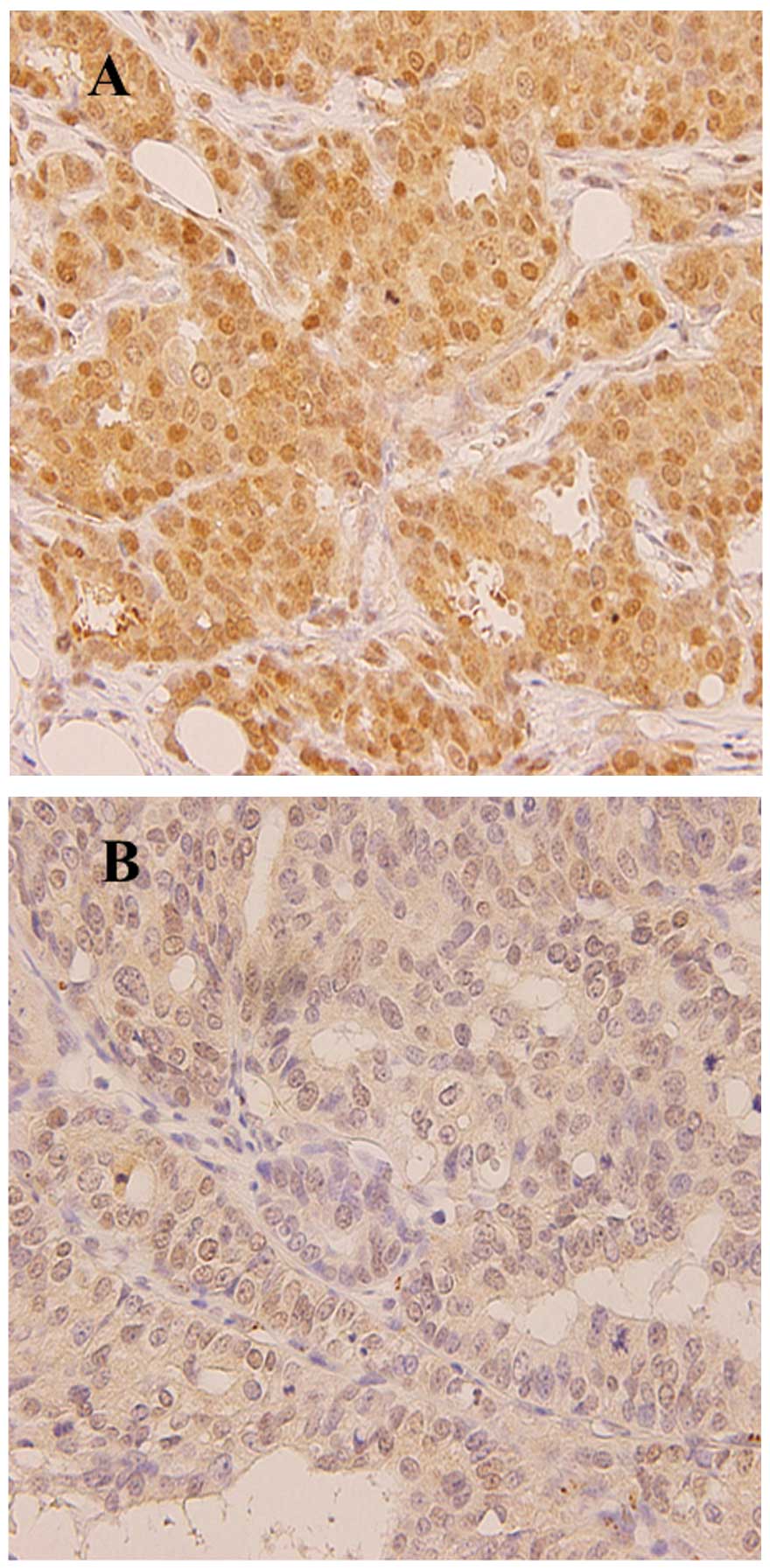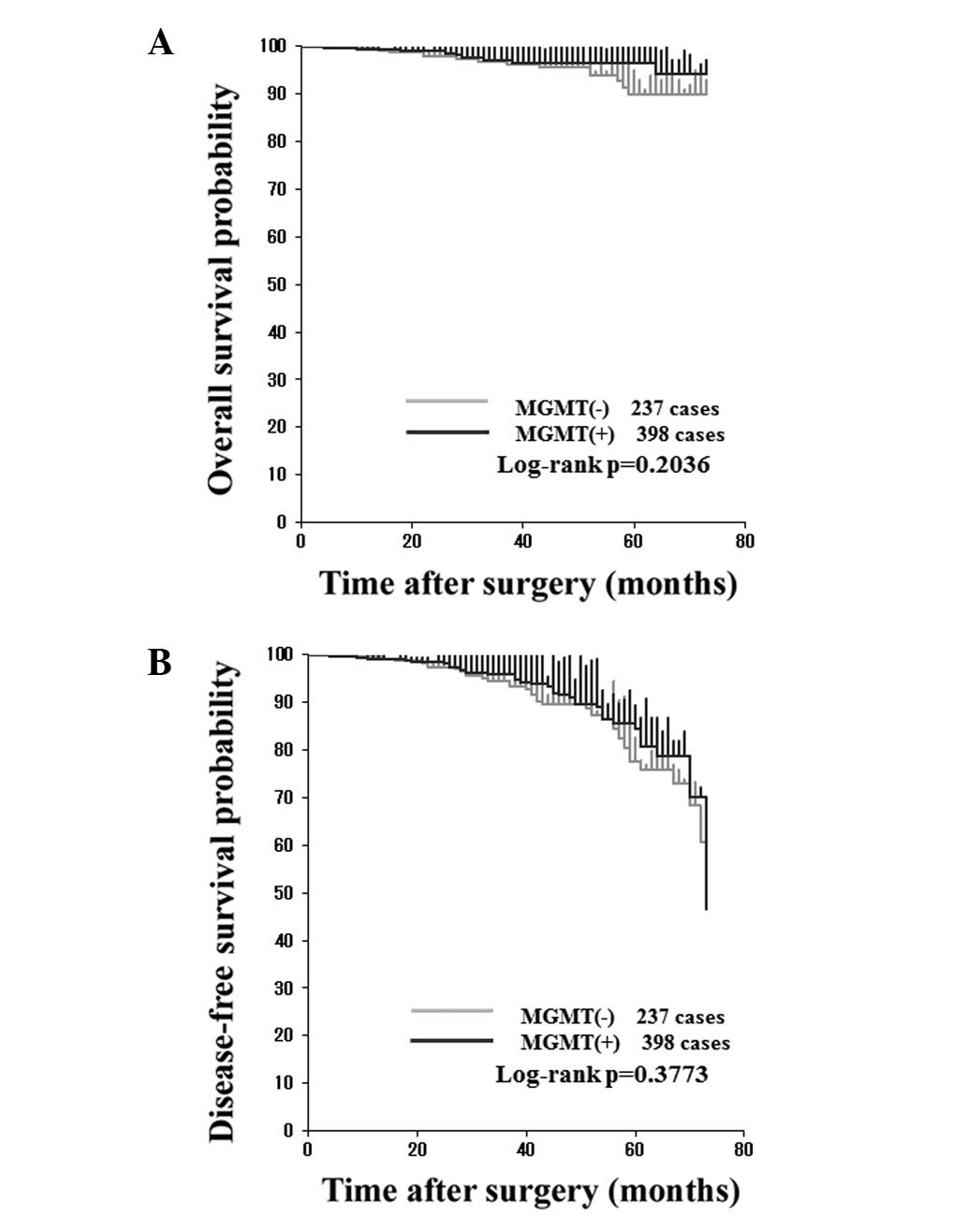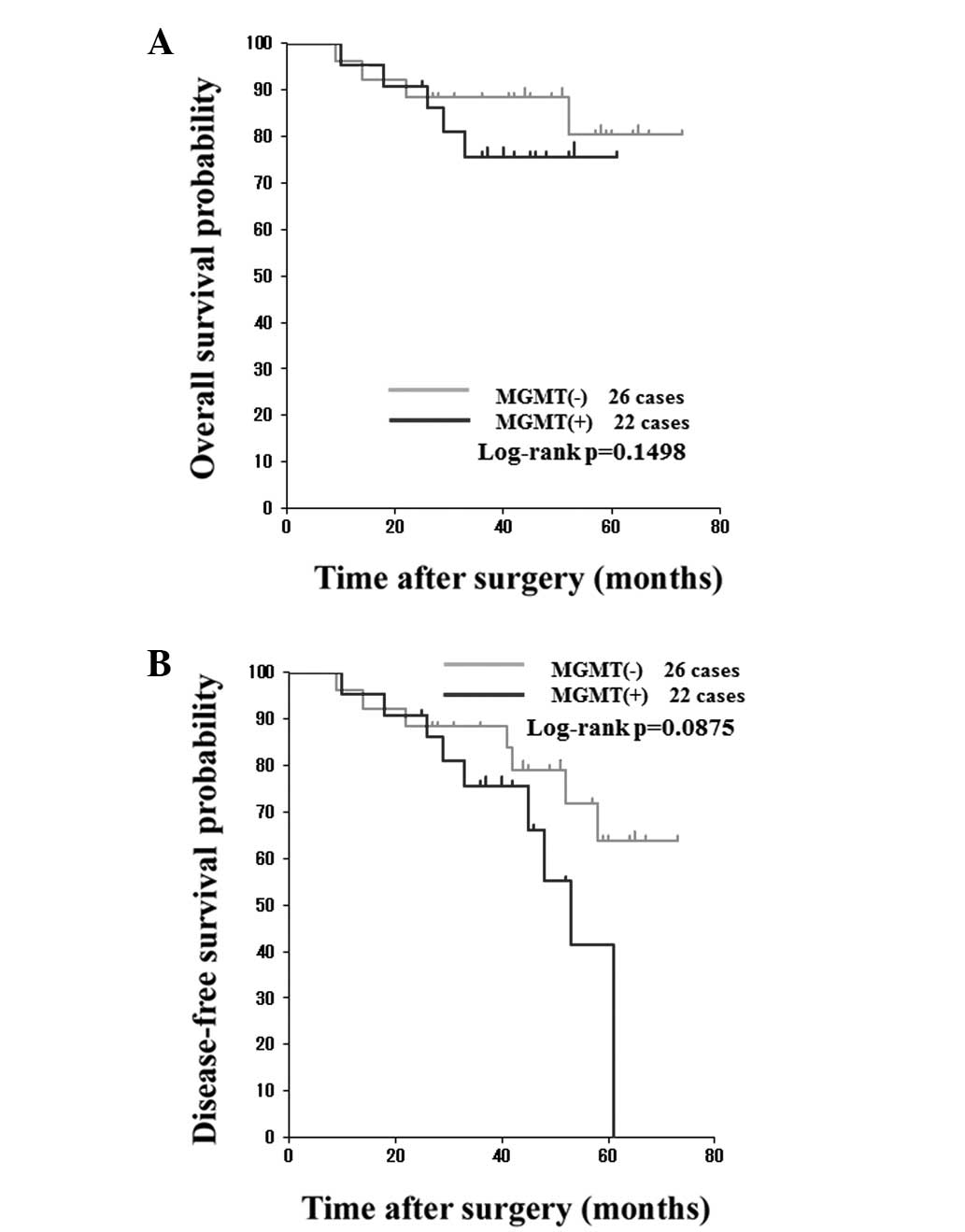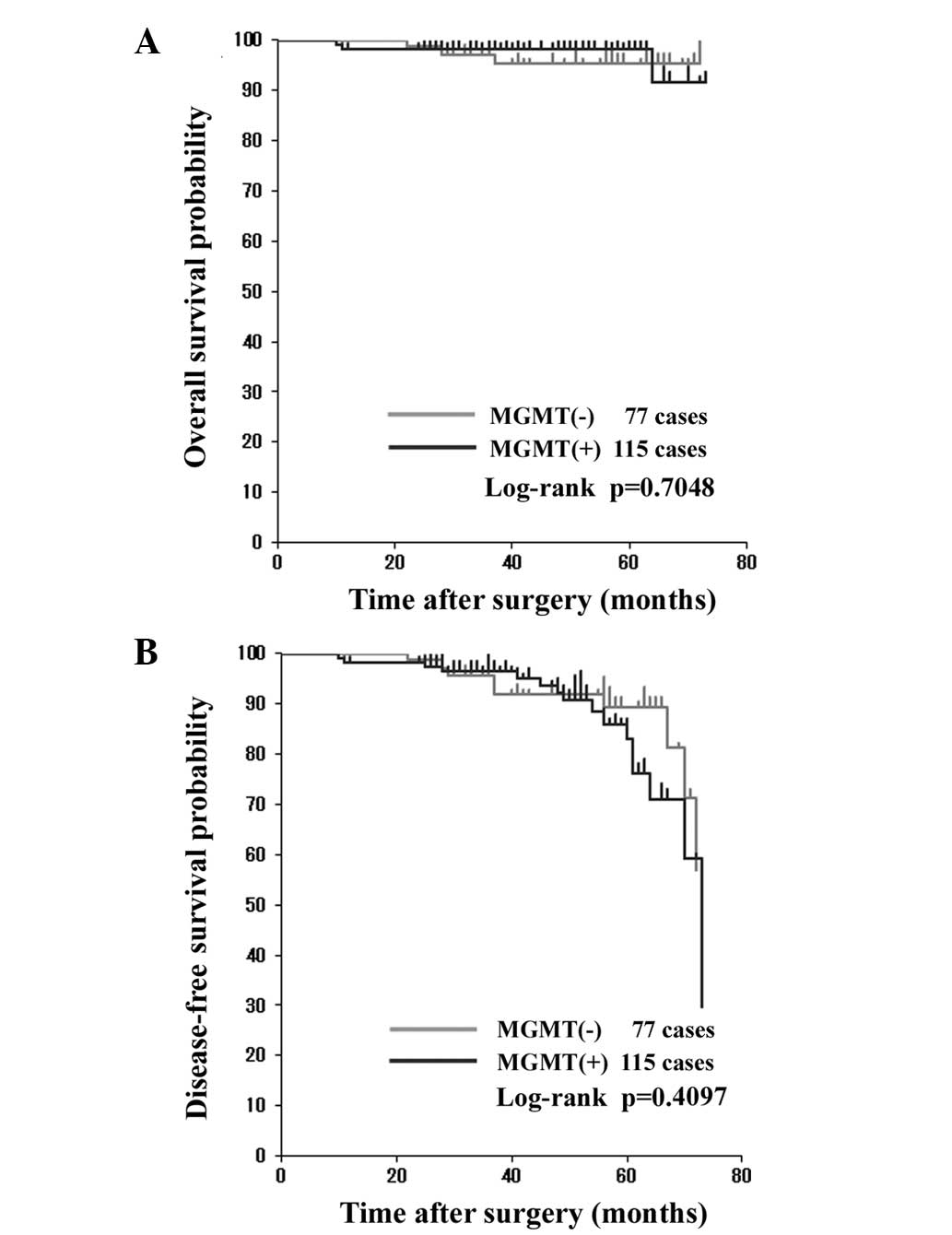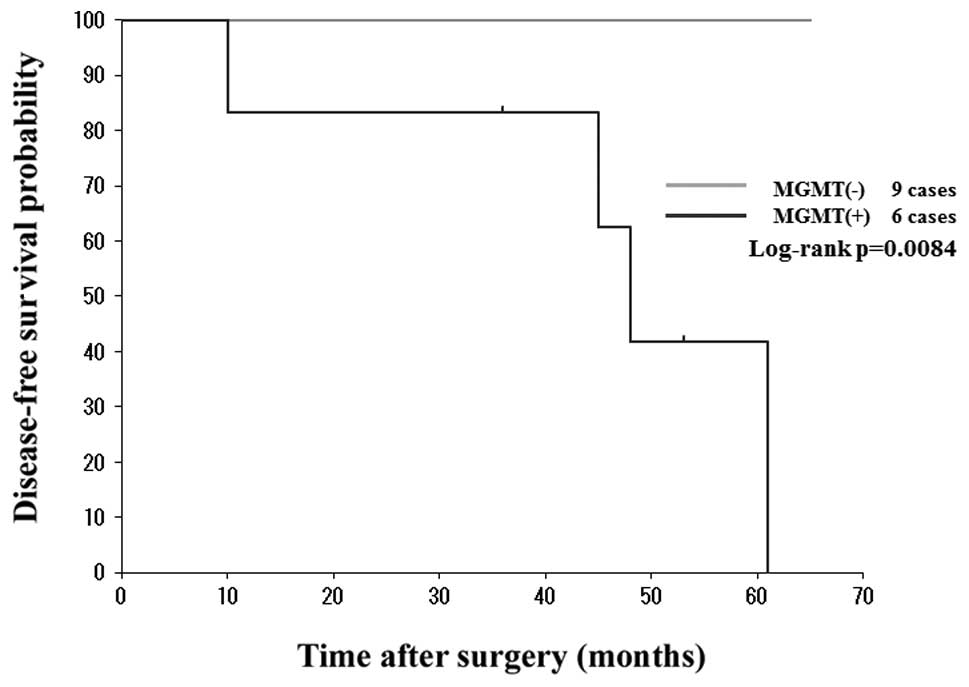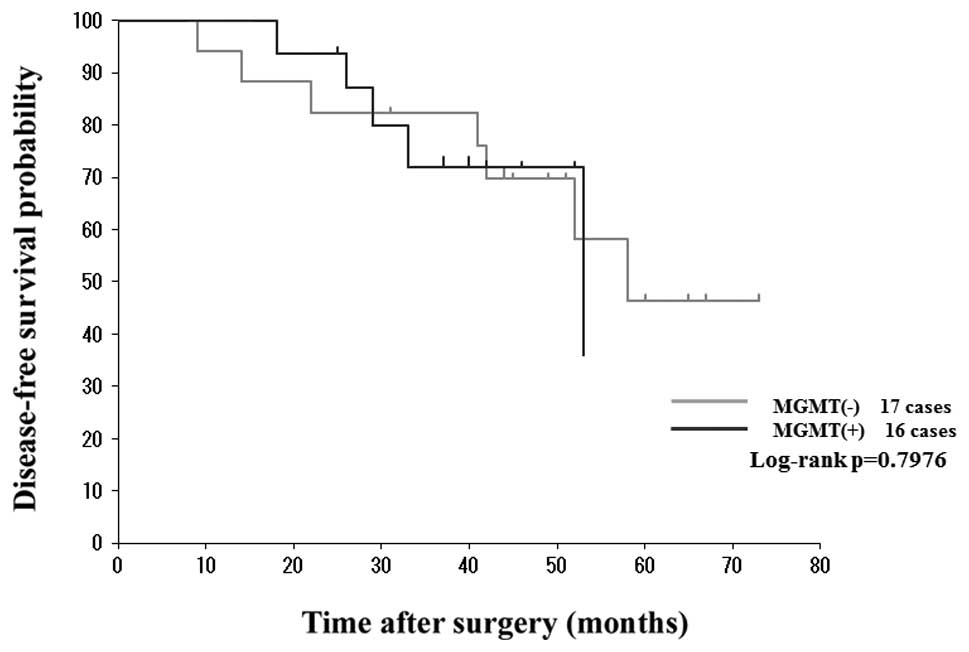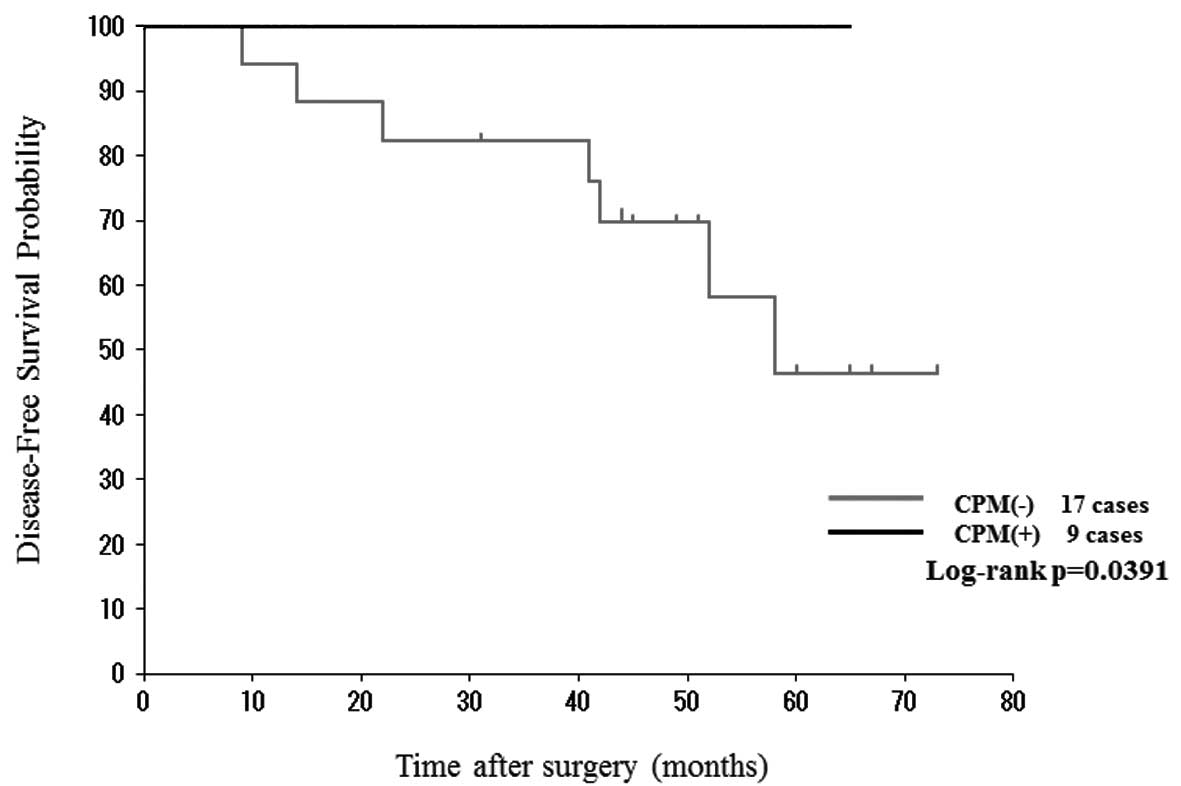|
1
|
Pegg A: Multifaceted roles of
alkyltransferase and related proteins in DNA repair, DNA damage,
resistance to chemotherapy, and research tools. Chem Res Toxicol.
24:618–639. 2011. View Article : Google Scholar : PubMed/NCBI
|
|
2
|
Colvin M and Hilton J: Pharmacology of
cyclophosphamide and metabolites. Cancer Treat Rep. 65(Suppl 3):
89–95. 1981.
|
|
3
|
Mattern J, Eichhorn U, Kaina B and Volm M:
O6-methylguanine-DNA methyltransferase activity and sensitivity to
cyclophosphamide and cisplatin in human lung tumor xenografts. Int
J Cancer. 77:919–922. 1998. View Article : Google Scholar : PubMed/NCBI
|
|
4
|
D’Incalci M, Bonfanti M, Pifferi A, et al:
The antitumour activity of alkylating agents is not correlated with
the levels of glutathione, glutathione transferase and
O6-alkylguanine-DNA-alkyltransferase of human tumour xenografts.
EORTC SPG and PAMM Groups. Eur J Cancer. 34:1749–1755. 1998.
|
|
5
|
Ohno T, Hiraga J, Ohashi H, et al: Loss of
O6-methylguanine-DNA-methyltransferase protein expression is a
favorable prognostic marker in diffuse large B-cell lymphoma. Int J
Hematol. 83:341–347. 2006. View Article : Google Scholar
|
|
6
|
Hansen RJ, Ludeman SM, Paikoff SJ, et al:
Role of MGMT in protecting against cyclophosphamide-induced
toxicity in cells and animals. DNA repair (Amst). 6:1145–1154.
2007. View Article : Google Scholar : PubMed/NCBI
|
|
7
|
Cayre A, Penault-Llorca F, De Latour M, et
al: O(6)-methyguanine-DNA methyl transferase gene expression and
prognosis in breast carcinoma. Int J Oncol. 21:1125–1131.
2002.PubMed/NCBI
|
|
8
|
Nakai K, Mitomi H, Alkam Y, et al:
Predictive value of MGMT, hMLH1, hMSH2 and BRCA1 protein expression
for pathological complete response to neoadjuvant chemotherapy in
basal-like breast cancer patients. Cancer Chemother Pharmacol.
69:923–930. 2012. View Article : Google Scholar
|
|
9
|
Esteller M, Hamilton SR, Burger PC, et al:
Inactivation of the DNA repair gene O6-methylguanine-DNA
methyltransferase by promoter hypermethylation is a common event in
primary human neoplasia. Cancer Res. 59:793–797. 1999.PubMed/NCBI
|
|
10
|
Wani G and D’Ambrosio SM: Expression of
the O6-alkylguanine-DNA alkyltransferase gene is elevated in human
breast tumor cells. Anticancer Res. 17:4311–4315. 1997.PubMed/NCBI
|
|
11
|
Citron M, Schoenhaus M, Rothenberg H, et
al: O6-methylguanine-DNA methyltransferase in normal and malignant
tissue of the breast. Cancer Invest. 12:605–610. 1994. View Article : Google Scholar : PubMed/NCBI
|
|
12
|
Osanai T, Takagi Y, Toriya Y, et al:
Inverse correlation between the expression of O6-methylguanine-DNA
methyl transferase (MGMT) and p53 in breast cancer. Jpn J Clin
Oncol. 35:121–125. 2005. View Article : Google Scholar : PubMed/NCBI
|
|
13
|
Matsukura S, Miyazaki K, Yakushiji H, et
al: Expression and prognostic significance of O6-methylguanine-DNA
methyltransferase in hepatocellular, gastric, and breast cancers.
Ann Surg Oncol. 8:807–816. 2001. View Article : Google Scholar : PubMed/NCBI
|
|
14
|
Neto JC, Ikoma MM, Carvalho KC, et al:
MGMT and PTEN as potential prognostic markers in breast cancer. Exp
Mol Pathol. 92:20–26. 2012. View Article : Google Scholar : PubMed/NCBI
|
|
15
|
Clemons MJ, Bibby MC, El Teraifi H, et al:
Heterogeneity of O6-alkylguanine-DNA-alkyltransferase expression in
human breast tumours. Br J Cancer. 86:1797–1802. 2002. View Article : Google Scholar : PubMed/NCBI
|
|
16
|
Perou CM, Sørlie T, Eisen MB, et al:
Molecular portraits of human breast tumours. Nature. 406:747–752.
2000. View
Article : Google Scholar : PubMed/NCBI
|
|
17
|
Sørlie T, Perou CM, Tibshirani R, et al:
Gene expression patterns of breast carcinomas distinguish tumor
subclasses with clinical implications. Proc Natl Acad Sci USA.
98:10869–10874. 2001.PubMed/NCBI
|
|
18
|
Prat A, Ellis MJ and Perou CM: Practical
implications of gene-expression-based assays for breast
oncologists. Nat Rev Clin Oncol. 9:48–57. 2011. View Article : Google Scholar : PubMed/NCBI
|
|
19
|
Fumagalli C, Pruneri G, Possanzini P, et
al: Methylation of O6-methylguanine-DNA methyltransferase (MGMT)
promoter gene in triple-negative breast cancer patients. Breast
Cancer Res Treat. 134:131–137. 2012. View Article : Google Scholar : PubMed/NCBI
|
|
20
|
Wolff AC, Hammond ME, Schwartz JN, et al:
American Society of Clinical Oncology/College of American
Pathologists guideline recommendations for human epidermal growth
factor receptor 2 testing in breast cancer. J Clin Oncol.
25:118–1145. 2007. View Article : Google Scholar
|
|
21
|
Livasy CA, Karaca G, Nanda R, et al:
Phenotypic evaluation of the basal-like subtype of invasive breast
carcinoma. Modern Pathol. 19:264–271. 2006. View Article : Google Scholar : PubMed/NCBI
|
|
22
|
Kim MJ, Ro JY, Ahn SH, et al:
Clinicopathologic significance of the basal-like subtype of breast
cancer: a comparison with hormone receptor and
Her2/neu-overexpressing phenotypes. Hum Pathol. 37:1217–1226. 2006.
View Article : Google Scholar : PubMed/NCBI
|
|
23
|
Nakasu S, Fukami T, Baba K and Matsuda M:
Immunohistochemical study for O6-methylguanine-DNA
methyltransferase in the non-neoplastic and neoplastic components
of glioma. J Neurooncol. 70:333–340. 2004. View Article : Google Scholar : PubMed/NCBI
|
|
24
|
Carey LA, Perou CM, Livasy CA, et al:
Race, Breast Cancer subtypes, and survival in the Carolina Breast
Cancer Study. JAMA. 295:2492–2502. 2006. View Article : Google Scholar : PubMed/NCBI
|
|
25
|
Munot K, Bell SM, Lane S, et al: Pattern
of expression of genes linked to epigenetic silencing in human
breast cancer. Hum Pathol. 37:989–999. 2006. View Article : Google Scholar : PubMed/NCBI
|
|
26
|
Sharma G, Mirza S, Parshad R, et al:
Clinical significance of promoter hypermethylation of DNA repair
genes in tumor and serum DNA in invasive ductal breast carcinoma
patients. Life Sci. 87:83–91. 2010. View Article : Google Scholar : PubMed/NCBI
|
|
27
|
O’Malley FP, Chia S, Tu D, et al:
Topoisomerase II alpha and responsiveness of breast cancer to
adjuvant chemotherapy. J Natl Cancer Inst. 101:644–650. 2009.
|
|
28
|
Colleoni M, Cole BF, Viale G, et al:
Classical cyclophosphamide, methotrexate, and fluorouracil
chemotherapy is more effective in triple-negative, node-negative
breast cancer: results from two randomized trials of adjuvant
chemoendocrine therapy for node-negative breast cancer. J Clin
Oncol. 28:2966–2973. 2010. View Article : Google Scholar
|
|
29
|
Falo C, Moreno A, Varela M, et al:
HER-2/neu ststus and response to CMF: retrospective study in a
series of operable breast cancer treated with primary CMF
chemotherapy. J Cancer Res Clin Oncol. 133:423–429. 2007.
View Article : Google Scholar : PubMed/NCBI
|
|
30
|
Munzone E, Curigliano G, Burstein HJ, et
al: CMF revisited in the 21st century. Ann Oncol. 23:305–311. 2012.
View Article : Google Scholar : PubMed/NCBI
|
|
31
|
Cai Y, Wu MH, Ludeman SM, et al: Role of
O6-alkylguanine-DNA alkyltransferase in protecting against
cyclophosphamide-induced toxicity and mutagenicity. Cancer Res.
59:3059–3063. 1999.PubMed/NCBI
|
|
32
|
Gamcsik MP, Dolan ME, Andersson BS and
Murray D: Mechanisms of resistance to the toxicity of
cyclophosphamide. Curr Pharm Des. 5:587–605. 1999.PubMed/NCBI
|
|
33
|
Hilton J: Role of aldehyde dehydrogenase
in cyclophosphamide-resistance L1210 leukemia. Cancer Res.
44:5156–5160. 1984.PubMed/NCBI
|
|
34
|
Kirsch DG and Kastan MB: Tumor-suppressor
p53: implication for tumor development and prognosis. J Clin Oncol.
16:3158–3168. 1998.PubMed/NCBI
|
|
35
|
Lehmann BD, Bauer JA, Chen X, et al:
Identification of human triple-negative breast cancer subtypes and
preclinical models for selection of targeted therapies. J Clin
Invest. 121:2750–2767. 2011. View
Article : Google Scholar : PubMed/NCBI
|















